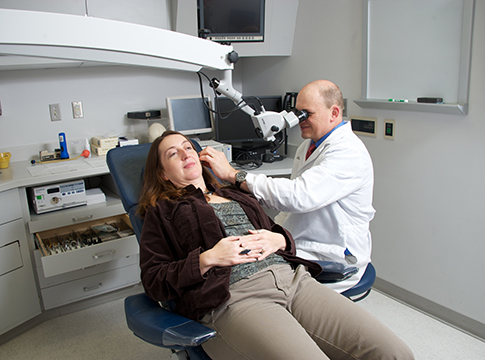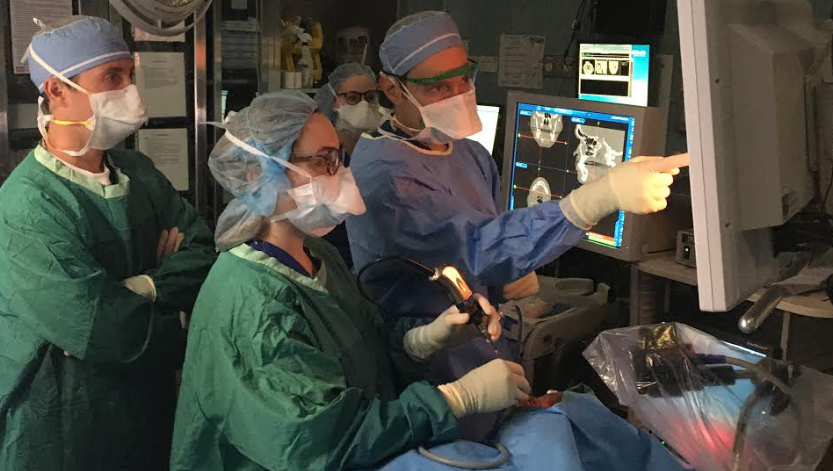Checking out the Area of Otolaryngology: What to Expect When You Get In Touch With an ENT
Otolaryngology, commonly described as ENT, encompasses the medical diagnosis and therapy of nose, ear, and throat problems. For those experiencing related concerns, consulting an ENT expert can provide clarity and relief. Recognizing what to anticipate throughout such assessments is vital for effective interaction and care. This review will detail essential aspects of the ENT experience, including usual reasons for brows through and the procedures associated with medical diagnosis and therapy.

Recognizing Otolaryngology: A Summary
Otolaryngology, typically described as ENT (Throat, ear, and nose) medicine, is a specialized branch of medication that focuses on the medical diagnosis and treatment of conditions influencing these essential areas of the body. This field includes a vast range of disorders, consisting of those relevant to hearing, balance, breathing function, and speech. Otolaryngologists are trained to handle both medical and medical therapies, utilizing sophisticated strategies and technologies. Their competence expands past typical disorders, addressing concerns such as allergies, sinus infections, and hearing loss. Additionally, they play an essential duty in the administration of head and neck cancers, giving detailed treatment tailored to specific person needs. On the whole, otolaryngology stays crucial for preserving health and lifestyle in afflicted individuals.
Usual Reasons to See an ENT Specialist
Lots of people look for the competence of an ENT professional for a selection of reasons, reflecting the varied nature of problems that affect the ear, nose, and throat. Common issues consist of chronic sinus problems, which typically brings about relentless nasal blockage and face pain. Allergies and their connected symptoms, such as sneezing and itching, additionally trigger visits to these specialists (Otolaryngologist). Hearing loss, whether sudden or steady, is an additional considerable factor for assessment. Additionally, individuals might look for evaluation for throat problems, consisting of relentless hoarseness or ingesting difficulties. Sleep apnea, defined by disrupted breathing throughout sleep, is often resolved by ENT experts. Each of these conditions highlights the value of specialized treatment in managing intricate ENT-related health and wellness concerns
Preparing for Your ENT Appointment
When getting ready for an ENT appointment, it is important to gather pertinent info and consider any specific worries. Patients ought to compile an in-depth medical history, including previous ear, nose, or throat problems, surgical treatments, and current medications. Documenting symptoms-- such as intensity, duration, and regularity-- can provide beneficial understandings for the ENT professional. Furthermore, people ought to prepare a listing of inquiries they want to ask, ensuring that all issues are resolved throughout the visit. Bringing along any type of pertinent medical records or examination outcomes can better aid the ENT in recognizing the patient's condition. People need to validate their consultation information, consisting of area, time, and day, to reduce any type of last-minute confusion. Proper preparation can improve the effectiveness of the assessment and result in much better end results.
What to Expect Throughout the Appointment
As the assessment starts, the client can expect to involve in a comprehensive discussion with the ENT professional concerning their symptoms and medical background. The expert will certainly inquire concerning the duration, regularity, and intensity of signs such as hearing loss, nasal congestion, or sore throat. Furthermore, the client's previous medical problems, drugs, and any kind of appropriate family background will be assessed, aiding the expert in creating a full understanding of the client's health. The ENT might additionally ask concerning way of life elements, such as exposure to irritants or irritants. This open dialogue develops a foundation for the appointment, making sure that the client's concerns are dealt with and establishing the stage for any kind of required assessments or recommendations for treatment.
Analysis Tests and Treatments in Otolaryngology
A variety of diagnostic examinations and procedures are essential in otolaryngology to accurately review and diagnose conditions influencing the throat, ear, and nose. Common examinations consist of audiometry, which gauges hearing function, and tympanometry, useful content examining middle ear pressure. Nasal endoscopy enables visualization of the nasal flows and sinuses, while laryngoscopy takes a look at the throat and singing cords. Imaging techniques, such as CT scans and MRIs, offer thorough sights of head and neck structures. Allergy testing might likewise be conducted to determine triggers for sinus or respiratory problems. These diagnostic devices make it possible for ENT professionals to develop a thorough understanding of patients' problems, making certain tailored and effective administration plans. Appropriate medical diagnosis is vital for successful treatment results in otolaryngology.
Therapy Choices Used by ENT Specialists
ENT experts use a selection of therapy alternatives customized to attend to details problems impacting the throat, nose, and ear. These therapies vary from traditional strategies, such as medication and way of living alterations, to more invasive treatments. For example, allergic reactions may be handled with antihistamines or immunotherapy, while chronic sinusitis may require nasal corticosteroids or sinus surgical treatment. For hearing loss, ENT specialists typically advise hearing help or medical treatments like cochlear implants. In instances of throat disorders, choices can consist of speech treatment or operations to get rid of blockages. Additionally, they may give assistance for handling rest apnea, consisting of the usage of CPAP devices or medical interventions. Generally, the goal is to improve individuals' quality of life with personalized care and effective therapy techniques.
When to Look For Follow-Up Care With an ENT
Identifying when to seek follow-up treatment with an ENT expert is important for taking care of continuous symptoms or issues associated with nose, throat, and ear conditions. Individuals should think about scheduling a follow-up visit if signs and symptoms persist in spite of initial therapy, such as persistent ear pain, nasal congestion, or throat pain. Modifications in hearing, balance problems, or uncommon nasal discharge might also warrant further analysis. Additionally, if an individual experiences side effects from recommended medicines or has actually undertaken a surgical procedure, follow-up treatment is necessary to check recovery and address any type of problems. Prompt assessments can ensure effective management of conditions, avoid possible complications, and provide satisfaction relating to one's wellness. Looking for follow-up treatment advertises positive wellness monitoring in otolaryngology.
Often Asked Concerns

What Qualifications Should I Look for in an ENT Expert?
When looking for an ENT specialist, one need to search for board qualification, appropriate experience, and solid individual reviews. Furthermore, reliable interaction skills and a thoughtful approach can substantially enhance the general therapy experience.
Exactly how Do I Pick the Right ENT for My Needs?
Selecting the right ENT expert involves examining their qualifications, experience, and individual reviews (ENT Doctor). It is vital to contemplate their communication style and method to therapy, ensuring they straighten with address the person's specific health and wellness needs and choices
Exist Any Kind Of Risks Connected With ENT Procedures?
The risks related to ENT treatments may include infection, bleeding, anesthesia complications, and prospective damages to bordering frameworks. get redirected here Patients ought to go over these threats with their medical professional to recognize individual concerns and guarantee informed choices.
How Can I Handle Anxiety Before My ENT Visit?
To handle stress and anxiety before a consultation, people can exercise deep breathing exercises, imagine favorable results, prepare concerns in advance, and seek support from buddies or family, cultivating a sense of confidence and calmness.
What Should I Do if I Experience Side Impacts From Therapy?
If adverse effects from treatment take place, the person should quickly report them to their doctor. Adjustments to therapy or additional interventions might be needed to guarantee security and efficiency in managing their condition - Sinus. As the consultation starts, the individual can expect to involve in an extensive discussion with the ENT expert concerning their signs and medical background. These diagnostic devices make it possible for ENT professionals to develop a comprehensive understanding of clients' problems, making certain customized and efficient administration plans. ENT experts use a selection of treatment choices customized to address certain problems impacting the ear, throat, and nose. When looking for an ENT specialist, one should look for board certification, relevant experience, and strong client reviews. Picking the ideal ENT specialist entails examining their credentials, experience, and client evaluations